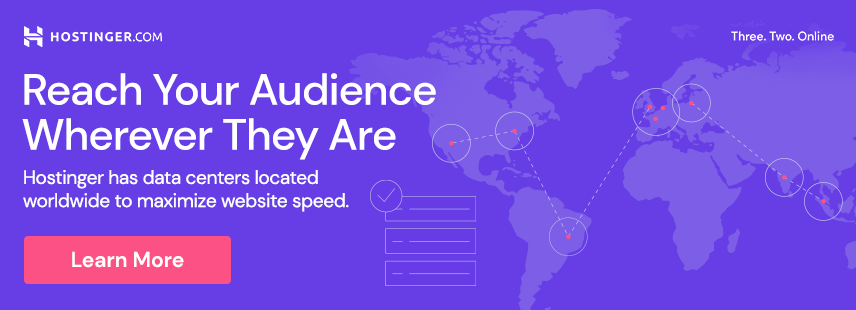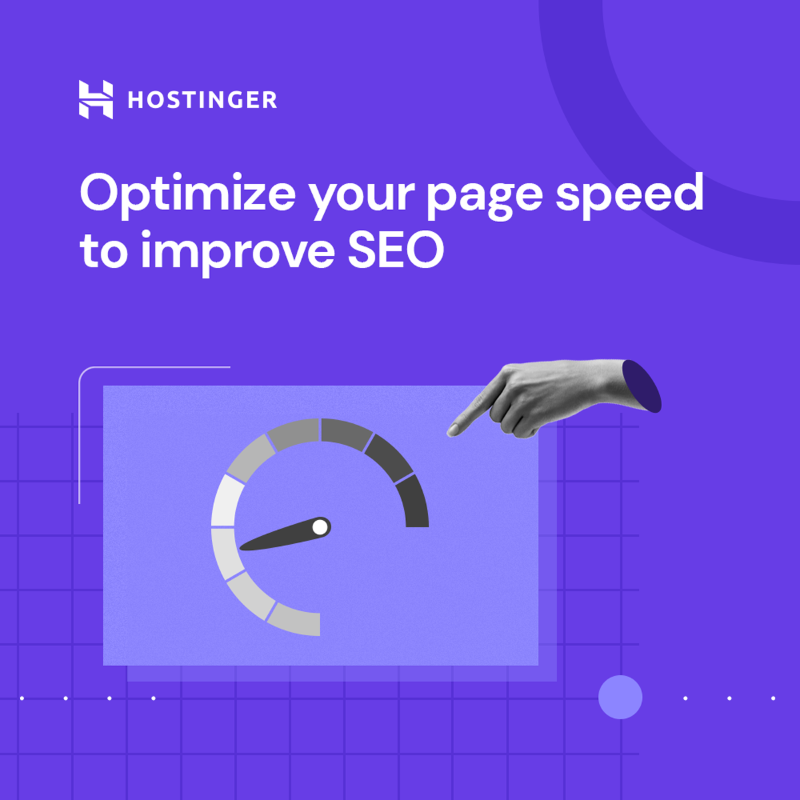Search Engine Optimization (SEO) plays a vital role in ensuring that your website is visible and ranks well on search engine result pages (SERPs). When it comes to optimizing your website for search engines, Hostinger SEO provides valuable services and tools to enhance your online presence. In this article, we will explore the various aspects of SEO and how Hostinger can help you optimize your website effectively.

In today’s digital age, having a strong online presence is crucial for businesses and individuals alike. With millions of websites competing for attention, it is essential to make your website stand out. This is where SEO comes into play. SEO involves implementing various strategies and techniques to improve your website’s visibility and organic traffic from search engines.
Table of Contents
Hostinger, a leading web hosting provider, understands the importance of SEO for website success. They offer comprehensive SEO services and tools to assist website owners in optimizing their online presence. Whether you’re a beginner or an experienced webmaster, Hostinger SEO has solutions tailored to your needs.
Understanding Search Engine Optimization (SEO)
Before diving into the details of Hostinger SEO, let’s understand the basics of SEO. SEO is the practice of optimizing your website to increase its visibility and organic traffic on search engines like Google, Bing, and Yahoo. By implementing SEO strategies, you improve your website’s chances of ranking higher on SERPs, making it more likely to be visited by users.
To achieve effective SEO, it is essential to focus on key elements such as keyword research, on-page optimization, off-page optimization, technical SEO, local SEO, and content marketing. These elements work together to enhance your website’s visibility and provide a better user experience.
Keyword Research and Analysis
One of the fundamental aspects of SEO is keyword research. It involves identifying the specific keywords and phrases that users are searching for related to your website’s content or industry. By understanding the keywords relevant to your target audience, you can optimize your website accordingly.
Several tools can assist you in conducting keyword research, such as Google Keyword Planner, SEMrush, and Moz Keyword Explorer. These tools provide valuable insights into keyword search volume, competition, and related keywords. By leveraging this data, you can select the most appropriate keywords to target in your content and optimize your website accordingly.
On-Page Optimization
On-page optimization focuses on optimizing individual web pages to improve their visibility and relevance to specific keywords. This involves optimizing meta tags and descriptions, creating SEO-friendly URLs, improving website loading speed, optimizing heading tags, and enhancing the overall content.
Meta tags, including the title tag and meta description, play a crucial role in communicating the relevance of your web page to search engines and users. By crafting compelling and keyword-rich meta tags, you can increase the click-through rate from search results.
Creating SEO-friendly URLs involves using descriptive keywords and organizing the URL structure logically. This helps search engines understand the content of your web pages and improves the user experience.
Website loading speed is another critical factor for SEO. A slow-loading website can negatively impact user experience and search engine rankings. By optimizing images, minimizing code, and leveraging caching techniques, you can significantly improve your website’s loading speed.
Optimizing heading tags, such as H1, H2, H3, and so on, helps structure your content and signals the importance of specific sections to search engines. By incorporating relevant keywords into your headings, you can improve the visibility of your content on SERPs.
Off-Page Optimization
In addition to on-page optimization, off-page optimization focuses on external factors that influence your website’s visibility and authority. Building high-quality backlinks from reputable websites is one of the most crucial off-page SEO strategies.
Backlinks serve as votes of confidence for your website, indicating to search engines that your content is valuable and trustworthy. However, it is essential to focus on acquiring high-quality backlinks from authoritative websites in your industry. Quality is more important than quantity when it comes to backlinks.
Engaging in social media promotion is another aspect of off-page optimization. By actively participating on social media platforms, sharing your content, and engaging with your audience, you can increase your website’s visibility and attract more organic traffic.
Guest blogging and influencer collaborations are also effective off-page SEO strategies. By contributing valuable content to authoritative blogs and collaborating with influencers in your industry, you can expand your reach and gain exposure to a wider audience.
Build your own dreams
Or someone else will hire you to build theirs. Here is how you can take action – starting today.

Technical SEO
Technical SEO focuses on optimizing the technical aspects of your website to ensure search engines can crawl, index, and understand your content effectively. It involves addressing issues related to website structure, mobile responsiveness, XML sitemaps, robots.txt, canonical tags, and 301 redirects.
Website structure and navigation play a crucial role in user experience and search engine crawling. A well-structured website with clear navigation helps search engines understand the hierarchy and relationships between different pages.
Mobile responsiveness is vital for SEO, considering the increasing number of users accessing the internet through mobile devices. Optimizing your website to provide a seamless experience on mobile devices can significantly impact your search engine rankings.
XML sitemaps and robots.txt files assist search engines in crawling and indexing your website’s content more efficiently. These files provide instructions to search engine bots about which pages to crawl and which ones to exclude.
Canonical tags and 301 redirects are essential for managing duplicate content and preserving SEO value. Canonical tags indicate the preferred version of a web page, while 301 redirects redirect users and search engines from an old URL to a new one, preserving link equity.
Local SEO
Claiming and optimizing your Google My Business (GMB) listing is a key step in local SEO. GMB is a free tool provided by Google that allows businesses to manage their online presence and appear in local search results. By claiming and optimizing your GMB listing, you can provide essential information about your business, such as address, phone number, business hours, and customer reviews.
Generating positive online reviews is another important aspect of local SEO. Positive reviews not only enhance your reputation but also influence potential customers’ decision-making processes. Encourage satisfied customers to leave reviews on platforms like Google, Yelp, and industry-specific directories.
Monitoring and Analytics
To ensure the effectiveness of your SEO efforts, it is crucial to monitor and analyze your website’s performance. Hostinger SEO provides tools and integrations to help you track and measure the impact of your optimization strategies.
Setting up Google Analytics is a fundamental step in monitoring website performance. It provides valuable insights into user behaviour, traffic sources, and conversion metrics. By analyzing this data, you can identify areas for improvement and make data-driven decisions to enhance your SEO strategy.
Tracking website performance and user behaviour involves monitoring key metrics such as organic traffic, bounce rate, average session duration, and conversion rate. By keeping an eye on these metrics, you can gauge the effectiveness of your SEO efforts and make necessary adjustments.
Content Marketing and SEO
Content marketing and SEO go hand in hand. Creating valuable and relevant content is essential for attracting organic traffic and establishing your website as a reliable source of information. Hostinger SEO emphasizes the importance of content marketing and provides guidance on optimizing your content for search engines.
When creating content, it is crucial to conduct keyword research and incorporate relevant keywords naturally. However, it is equally important to focus on providing value to your audience. Develop content that addresses their pain points, answers their questions, and offers unique insights. By creating valuable content, you can attract organic backlinks, increase social shares, and improve your website’s authority.
Optimizing your content involves various aspects, including formatting, readability, and multimedia elements. Break your content into sections using headings and subheadings (H1, H2, H3, etc.) to improve readability and make it easier for search engines to understand your content’s structure. Incorporate relevant images, videos, infographics, and other multimedia elements to enhance the user experience and engagement.
SEO Trends and Updates
The field of SEO is constantly evolving, with search engines regularly updating their algorithms. Staying up-to-date with the latest trends and updates is crucial for maintaining a successful SEO strategy.
Voice search and mobile optimization are two key trends shaping the SEO landscape. With the rise of voice assistants like Siri, Alexa, and Google Assistant, optimizing your website for voice search queries is becoming increasingly important. This includes targeting long-tail keywords, providing concise and informative answers, and optimizing your website for mobile devices.
User experience (UX) is another important factor in SEO. Search engines consider user signals, such as bounce rate, time on site, and page loading speed, as indicators of a website’s UX. Optimizing your website for fast loading speed, easy navigation, and engaging content can improve your search engine rankings.
Hiring an SEO Professional vs. DIY SEO
Deciding whether to hire an SEO professional or tackle SEO on your own depends on various factors. Hiring an SEO professional can provide you with expertise, industry knowledge, and time-saving benefits. They can develop a customized SEO strategy tailored to your specific goals and help you navigate the complexities of SEO.
On the other hand, implementing SEO strategies on your own can be a cost-effective option if you have the time and willingness to learn. There are numerous online resources, guides, and courses available to help you understand and implement SEO best practices.
It’s important to weigh the pros and cons, considering factors such as your budget, time availability, and the complexity of your website. Hostinger SEO offers resources and support for both beginners and experienced webmasters, allowing you to make informed decisions based on your unique circumstances.
Conclusion
Optimizing your website for search engines is crucial for increasing visibility, attracting organic traffic, and achieving online success. Hostinger SEO provides comprehensive services and tools to help you navigate the complexities of SEO effectively. By understanding the key elements of SEO, conducting thorough keyword research, implementing on-page and off-page optimization strategies, focusing on technical SEO and local SEO, and leveraging content marketing, you can enhance your website’s visibility and drive sustainable organic traffic.
Whether you choose to hire an SEO professional or embark on a DIY SEO journey, Hostinger SEO is there to support you with their expertise and resources. Remember, SEO is an ongoing process, and staying updated with the latest trends and updates is essential for long-term success. Invest in optimizing your website for search engines, and you’ll reap the rewards of increased visibility, higher rankings, and more engaged visitors.
FAQs (Frequently Asked Questions)
1. How long does it take to see results from SEO? The timeline for seeing SEO results can vary depending on various factors, including the competitiveness of your industry, the current state of your website, and the strategies implemented. Generally, it takes several months to start seeing significant improvements in search engine rankings and organic traffic. SEO is a long-term investment that requires patience and consistent effort.
2. Can I do SEO on my own without hiring an SEO professional? Yes, you can implement SEO strategies on your own. There are plenty of online resources, guides, and courses available to help you understand and implement SEO best practices. However, keep in mind that SEO is a complex and ever-evolving field, and hiring an SEO professional can provide you with expertise, industry knowledge, and time-saving benefits.
3. What is the importance of local SEO for businesses? Local SEO is crucial for businesses targeting a specific geographic area. It helps your business appear in local search results, improves your visibility among local customers, and increases foot traffic to your physical store. Claiming and optimizing your Google My Business listing, generating positive online reviews, and targeting location-specific keywords are some of the key aspects of local SEO.
4. How often should I update my website’s SEO strategies? SEO is an ongoing process, and it’s essential to regularly review and update your website’s SEO strategies. Search engines frequently update their algorithms, user behavior and preferences change over time, and your competitors may be implementing new SEO tactics. Staying proactive and adapting your strategies to these changes will help you maintain and improve your website’s search engine rankings.
5. Is content marketing important for SEO? Yes, content marketing is integral to a successful SEO strategy. Creating valuable and relevant content helps attract organic traffic, establish your website as a reliable source of information, and increase engagement. By incorporating target keywords, optimizing formatting and readability, and incorporating multimedia elements, you can enhance the visibility and relevance of your content in search engine results.





